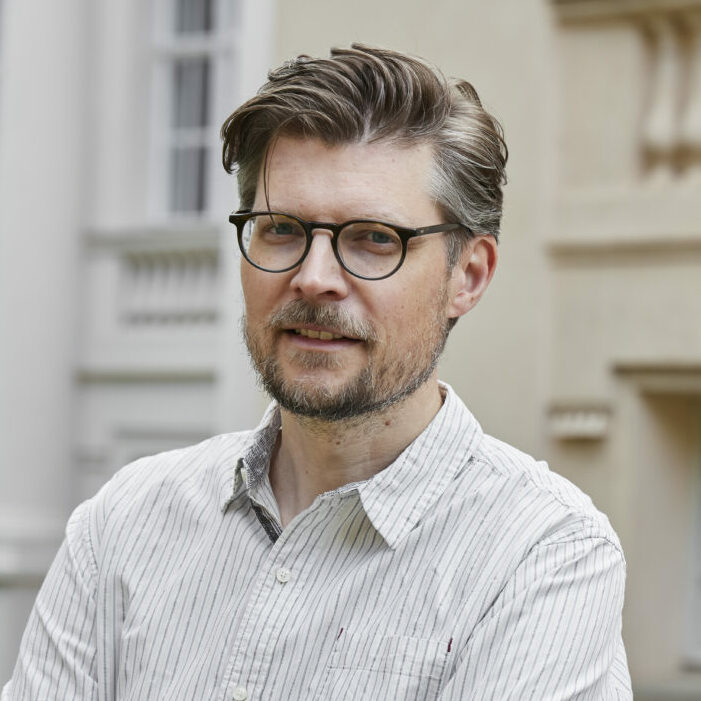Collaboration between science and society on water
Tobias Krüger

How models can be of help in decision-making
The geoecologist and hydrologist Tobais Krüger still receives messages from water companies, farmer’s associations, and environmental associations in England where he developed a computer model that simulates scenarios of land use near rivers. “Using this model, we can see how the intensification of agriculture or waste water from a sewage treatment plant would affect ecosystems and their water quality. That helps us in making decisions”, he says. The special thing about the model is that it was developed with local actors who now actively use it and who ask the researcher from time to time for small adjustments on the model. Born at the Rhine, Krüger came to Berlin in 2013 after 8 years in England to continue his research along the river Spree.
The meaning of water
Now the researcher wants to apply participatory approaches in Berlin and bring together different stakeholders ranging from companies to consumers for a joint status description of the local water landscape. For the natural scientist, water is the basis of physicochemical processes as well as of human activity. “Which role does the water resource play in the development of Berlin? Who has which water needs and access to water? I am not only interested in problems such as water pollution or utilization pressures. I also find the positive inclusion of water in our lives exciting, such as the use of the Spree as a public swimming spot”, he says. Whereas the local contacts for water research in Berlin are still to be established, research cooperation between Germany and Colombia is already well established. Since 2014 the research group of Tobias Krüger collaborates with the Pontificia Universidad Javeriana in Bogotá (PUJ) on questions of water security and biodiversity.
Why uncertainties are part of research
Tobias Krüger’s research is concerned with all matters of uncertainty, a research field he got to know at Lancaster University in the course of his thesis and doctorate. The approach gets to the bottom of scientific knowledge and calls for collaboration between science and society. “In our traditional understanding of science, science is seen as absolute monopolist over knowledge production and objectivity and neutrality are taken as a matter of course. With regards to processes of transformation, citizens have to be recognized as equal partners because their knowledge, views, and questions mean completely new impulses for research. Moreover credible research does not deny its subjective elements, but also unfolds the cultural, political, and economic factors influencing it”, says Krüger. As a modeler he is in particular interested in those variables which cannot be predicted with certainty. “We don’t know how ecosystems will look like in the future because we don’t know how people will change their behavior towards the nature. The future is an open process and we, as scientists, want to help leading this process of transformation into the direction of sustainability.” In that respect, Krüger is convinced that science itself has to strike out in a new direction, for example through interdisciplinarity, citizen participation, and “real” experimenting.
Why we need interdisciplinary personalities
To be able to combine and reconcile different perspectives, his team brings together geoecologists and ecologists, economists, engineers, and physicists. “In order to really work interdisciplinary, we need strong disciplines complementing each other as well as people working at the interface and being able to also keep in mind reflexive elements of their own research and accompany processes critically. It is my aspiration to foster such interdisciplinary personalities within their doctoral and postdoctoral stages of career”, says the group leader.
Contact

Tobias Krüger
Email:
Tobias Krüger is Professor of Hydrology and Society at Humboldt-Universität´s Geography Department. He studied Geoecology at the Technical University of Braunschweig and obtained his doctorate in Environmental Science from Lancaster University in 2009. From 2008 to 2013, he worked as Senior Research Associate, Associate Tutor and Knowledge Exchange Fellow at the University of East Anglia.


